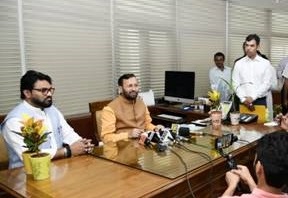The unprecedented COVID-19 environment has thrown up several challenges for industries across the globe. The growing distributed workforce environment is pushing businesses to deploy new-age digital operational methodologies to deliver a tailored and personalized experience to their customers.
Amidst the digital transformation wave, a technology that has been swiftly gaining ground worldwide to enable businesses to revolutionize their conventional processes is Robotic Process Automation (RPA). The pandemic has made organizations rethink their operational models and integrate artificial intelligence and automation in their processes to ensure that there is no pause.
Incorporating AI and machine learning capabilities, RPA uses software robots that allow organizations to automate multiple high-volume, repeatable tasks. It includes calculations, approvals, invoice creation, server maintenance, merging data from other sources, and copying and pasting data.
There is a growing emphasis on deploying digital bots to reduce employee workloads and accelerate business transformation. Through the RPA bots, organizations are able to empower their employees to concentrate on productive tasks and respond to new challenges more effectively.
Customer centricity driving new automated models
Business process management solutions are widely adopted to streamline processes and transforming enterprise value propositions. Customer-centricity is a highly discussed subject today across the CXO boardrooms, and businesses are rapidly exploring the best ways to cut down on time lost on repetitive tasks.
By automating a business process, organizations can minimize work as it enables them to provide round the clock support to their clients from the bots.
At Better World, our recent interactions with several technology leaders and senior executives suggest that approximately 15 to 20 percent of all human hours are unexploited across industries due to repetitive tasks. The ratio is even higher in the IT sector, where about 25 percent of working hours are lost due to repetitive transactional tasks. With RPA enabled tools, companies can let employees focus on high-quality tasks with better efficiency and productivity. (See: Anshuman Tiwari, Global Head of Delivery Excellence, DXC Technology)
The RPA workforce comprises different software robot levels, performing monotonous and admin-driven tasks at an exceptional speed with minimal human intervention. Take the case of German automaker Volkswagon in India. Its Indian arm has substantially leveraged the capability of RPA to transform several of its processes. From its finance department to the customer service department, the company has automated over 80 processes successfully through RPA tools. Amongst the highlights, it deployed a bot to help its customer service team fetch real-time data that can be utilized to address customer queries.
A similar case in point is Thomas Cook India, a leading travel management firm. To navigate the lockdown-induced disruption, the company partnered with an RPA solution provider, ‘Automation Anywhere,’ to support its virtual workforce and drive automation in several of its processes.
Sectors such as BFSI, healthcare, and travel are aggressively exploring the best ways to implement software bots to improve their bottom lines and automate back-end operations.
Mushrooming market
In India, RPA growth has been primarily driven by the need to optimize various back-end processes in accounting, IT operations, and human resource management. Many companies are finding it tough to keep up with the increasing demand for services in an environment filled with anxiety. And this is where technologies like RPA are creating a strong impact.
According to several industry estimates, in the next four years, the RPA market is expected to reach around $80 million in the country, helping organizations manage growth in a sustainable manner.
The RPA vendors are expanding their presence in India, and 2021 will be a crucial year for this technology to thrive in the domestic market. The industry onlookers expect several rounds of consolidations and collaborations that will strengthen the RPA models in the country.
Besides top vendors like UiPath, Automation Anywhere, Blue Prism, and WorkFusion, several exciting startups are gearing up to make a mark in the RPA space. Most of the vendors are investing heavily in research and development efforts. There is an increased push to launch ready to deploy bot solutions that can quickly take on human-intensive transactional work.







0 Comments